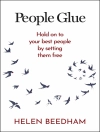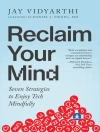Connecting Renaissance humanism to the variety of “critical posthumanisms” in twenty-first-century literary and cultural theory, Renaissance Posthumanism reconsiders traditional languages of humanism and the human, not by nostalgically enshrining or triumphantly superseding humanisms past but rather by revisiting and interrogating them. What if today’s “critical posthumanisms, ” even as they distance themselves from the iconic representations of the Renaissance, are in fact moving ever closer to ideas in works from the fourteenth to the seventeenth century? What if “the human” is at once embedded and embodied in, evolving with, and de-centered amid a weird tangle of animals, environments, and vital materiality? Seeking those patterns of thought and practice, contributors to this collection focus on moments wherein Renaissance humanism looks retrospectively like an uncanny “contemporary”—and ally—of twenty-first-century critical posthumanism.
เกี่ยวกับผู้แต่ง
Joseph Campana is Alan Dugald Mc Killop Chair and Associate Professor at Rice University. He is the author of The Pain of Reformation: Spenser, Vulnerability, and the Ethics of Masculinity (Fordham, 2012), which won the South Central MLA Book Prize, and two collections of poetry, The Book of Faces (Graywolf, 2005) and Natural Selections (Iowa, 2012), which won the Iowa Poetry Prize. His essays have appeared in PMLA, Modern Philology, ELH, Shakespeare, Shakespeare Studies, and elsewhere. He is currently completing two studies, The Child’s Two Bodies, which considers children and sovereignty in the works of Shakespeare, and Bee Tree Child, which explores scale, multiplicity, plasticity, and other new rubrics for calibrating the relationship between human and non-human worlds in the Renaissance.







